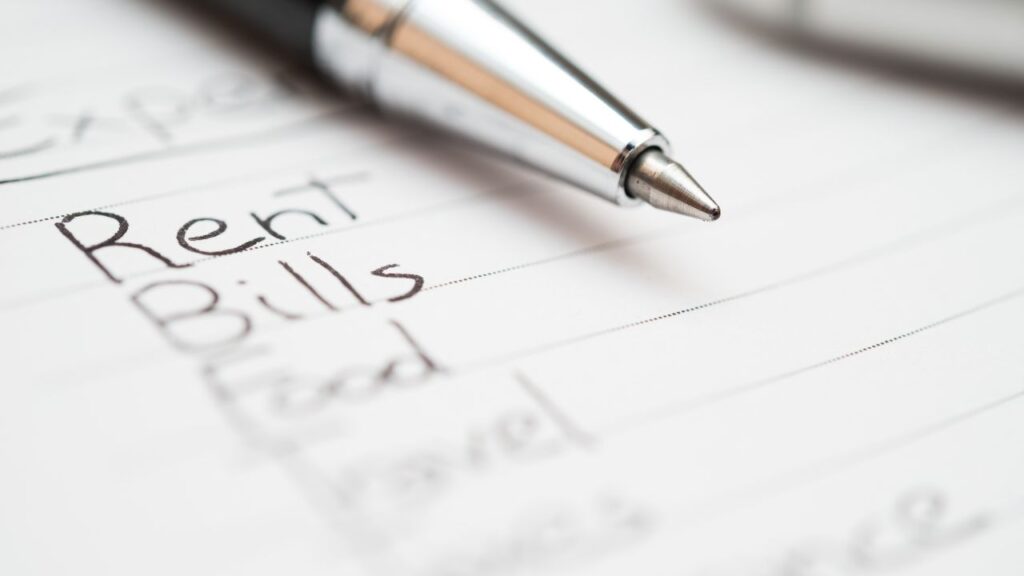Buying your first home is a significant milestone, but it often comes with a daunting financial journey. Whether you’re planning to buy within the next year or further down the road, building a solid savings strategy is key to making homeownership a reality. For first-time homebuyers, understanding how to save smartly and prepare for the associated costs can ease the stress and put you on the path to success. From setting a realistic budget to exploring assistance programs, this guide outlines the essential savings strategies every first that every first-time homebuyer should know to help them achieve their dream.
Set a Realistic Homebuying Budget
Before you start browsing listings, it’s essential to set a realistic homebuying budget. This budget should be based on your current financial situation and future goals, ensuring that you can comfortably afford both the upfront costs and ongoing expenses of homeownership. A good starting point is to assess your income, savings, and debt to get a clear picture of what you can afford without stretching your finances too thin.
Experts often recommend following the 28/36 rule, which suggests that no more than 28% of your gross monthly income should go toward housing costs (including mortgage payments, property taxes, and insurance), and no more than 36% should cover all of your debt obligations. By sticking to this formula, you can avoid taking on more house than you can reasonably afford, which reduces the risk of financial strain later on.
In addition to the mortgage, consider other costs like closing fees, property maintenance, and potential renovations. It’s also wise to factor in fluctuating expenses, such as property taxes and homeowner’s insurance, which may rise over time. By setting a comprehensive, realistic, and detailed budget, you’ll have a clearer path forward and be better prepared for both the expected and unexpected costs of owning a home.
Calculate Your Down Payment Goal

One of the most critical steps in saving for your first home is determining how much you’ll need for the down payment. Typically, lenders require anywhere from 3% to 20% of the home’s purchase price, depending on the type of loan you choose. While a smaller down payment might be tempting, putting down at least 20% can help you avoid private mortgage insurance (PMI), which adds to your monthly costs. However, even if 20% isn’t feasible, don’t be discouraged—many loan programs, especially for first-time homebuyers, offer lower down payment options.
To calculate your down payment goal, start by researching home prices in the area where you’re looking to buy. Use those prices as a benchmark and apply the percentage you plan to put down. For example, if you’re looking at homes that average $300,000 and you aim for a 10% down payment, you’ll need $30,000 saved. Setting a clear savings target will make it easier to budget and track your progress and adjust your budget along the way.
Don’t forget to account for other costs you might face upfront, such as closing fees and moving expenses. While the down payment is likely to be your biggest immediate expense, having a comprehensive savings plan that considers all financial aspects of buying a home will better prepare you for the journey ahead.
Explore First-Time Homebuyer Assistance Programs
For many first-time homebuyers, finding the funds for a down payment and closing costs can feel overwhelming. Fortunately, there are numerous assistance programs designed to help reduce these financial burdens. These programs, often offered by federal, state, and local governments, as well as non-profit organizations, can provide grants, low-interest loans, or tax incentives to help first-time buyers enter the housing market.
One of the most well-known options is the Federal Housing Administration (FHA) loan, which allows buyers to make a down payment as low as 3.5% with less stringent credit score requirements. Additionally, many states offer their own first-time homebuyer programs, which often include down payment assistance, closing cost help, or discounted mortgage rates. Researching and applying for these programs early can make a significant difference in your ability to afford your first home.
Beyond government programs, there are also non-profit organizations and community-based programs that can offer assistance. These programs may focus on specific populations, such as veterans, teachers, or low-income households. It’s essential to do thorough research to understand the qualifications and benefits each program offers. By exploring all available resources, you can ease the financial pressure and make your homebuying journey smoother.
Build a Solid Emergency Fund
Before you begin your journey toward homeownership, it’s essential to have a robust emergency fund in place. Buying a home comes with unexpected costs that can arise at any time, from repairs and maintenance to fluctuations in utility bills. Having an emergency fund will give you the financial cushion you need to handle unforeseen expenses without derailing your budget or adding unnecessary debt.
An ideal emergency fund should cover at least three to six months of living expenses, including mortgage payments, utilities, groceries, and other necessities. This ensures that if you experience a loss of income, job transition, or sudden financial burden, you can stay afloat without compromising your ability to make mortgage payments. It also provides peace of mind during the home-buying process, as you’ll be better equipped to handle any bumps in the road.
Start building your fund early, and prioritize it as part of your saving strategy. Consider setting up automatic transfers to a separate high-yield savings account to grow your fund steadily without being tempted to spend it. While it may seem like a large commitment, having a solid emergency fund will ultimately provide long-term stability in your financial future as a homeowner.
Cut Unnecessary Expenses

One of the quickest ways to accelerate your home savings is by trimming unnecessary expenses. Begin by reviewing your current spending habits and identifying areas where you can cut back. This might include reducing discretionary spending such as dining out, entertainment subscriptions, or luxury purchases. Small financial sacrifices made now can lead to significant savings over time, helping you reach your down payment goal faster.
Creating a monthly budget can also keep you on track. By categorizing your expenses, you’ll have a clearer picture of where your money is going. Consider setting limits on non-essential or unnecessary spending, and redirecting that money into your homebuying savings. For example, instead of going out to dinner several times a week, try cooking more meals at home. These adjustments may seem minor, but they add up over time.
Finally, look for opportunities to save on your fixed expenses as well. Review your utility bills, insurance policies, and recurring payments to see if there are cheaper alternatives. Comparison shopping for better deals on services like internet, phone plans, or car insurance are a few strategies that could free up extra cash to contribute toward your home fund. The more disciplined you are with your spending, the quicker you’ll be able to achieve your homeownership dreams.
Maximize Your Savings with High-Interest Accounts
One of the most effective ways to grow your savings faster is by taking advantage of high-interest savings accounts. Traditional savings accounts typically offer minimal interest, which does little to accelerate your savings. Instead, consider opening a high-yield savings account (HYSA) or a money market account. These accounts offer significantly higher interest rates, allowing your money to work harder for you without any added risk.
With a high-yield savings account, you can continue to save toward your down payment while earning more interest than you would with a standard account. Many HYSAs are easy to set up, have no minimum balance requirements, and can be managed online. Over time, the compounded interest can make a noticeable difference, especially if you set up automatic transfers to consistently grow your balance.
Before selecting an account, make sure to compare interest rates and fees between different banks or credit unions. Some accounts may come with limitations, such as monthly transaction limits or required minimum balances, so it’s essential to choose the one that best suits your financial habits.
Improve Your Credit Score Early

Your credit score plays a crucial role in the homebuying process, as it directly impacts the mortgage rates you’ll be offered. A higher credit score can save you thousands of dollars over the life of a loan by securing you a lower interest rate. That’s why it’s essential to start improving your credit score well before you begin house hunting.
Begin by checking your credit report for any errors or inaccuracies that might be negatively affecting your score. You’re entitled to a free annual report from major credit bureaus, so use this opportunity to dispute any discrepancies. Paying off outstanding debts, especially high-interest credit card balances, is another effective way to boost your score. Aim to keep your credit utilization ratio below 30% to show lenders you’re a responsible borrower.
In addition to reducing debt, make sure you’re consistently paying your bills on time. Late or missed payments can significantly lower your score, and recovering from them takes time. If you’re concerned about missing a payment, consider setting up automatic payments or reminders. With steady effort and a focus on managing debt responsibly, you’ll be in a much better position to secure favorable mortgage terms when the time comes.
Understand the Hidden Costs of Homeownership
When purchasing your first home, it’s easy to focus solely on the price tag and the down payment. However, many first-time homebuyers overlook the hidden costs associated with homeownership, which can catch you off guard if you’re not prepared. These expenses go beyond the monthly mortgage payment and can significantly impact your overall budget if not accounted for properly.
One of the most commonly overlooked costs is property taxes. These vary depending on where your home is located and can be a substantial addition to your monthly or annual expenses. Along with property taxes, homeowners’ insurance is another recurring cost that’s often higher than renters’ insurance and is essential for protecting your investment. Be sure to shop around and compare insurance rates to avoid overpaying.
Maintenance and repairs are inevitable parts of owning a home, and they can add up quickly. From fixing a leaky roof to replacing aging appliances, home maintenance requires a financial cushion. Setting aside at least 1% to 3% of your home’s value annually for repairs and upkeep can help you avoid financial strain when unexpected issues arise. By understanding these hidden costs and planning for them in advance, you can avoid being blindsided and ensure a smoother transition into homeownership.
Automate Your Savings
One of the easiest ways to ensure you’re consistently saving for your first home is to automate the process. By setting up automatic transfers from your checking account to a dedicated savings account, you eliminate the temptation to spend the money elsewhere. Many banks and financial apps allow you to schedule these transfers on a recurring basis, such as weekly, bi-weekly, or monthly, depending on when you receive your paycheck. This approach takes the pressure off and ensures that you’re making steady progress toward your goal, even when life gets busy.
In addition to setting up transfers, you can explore tools that round up your everyday purchases to the nearest dollar and deposit the difference into your savings. These small contributions may seem minor, but they can add up significantly over time, especially if you’re disciplined with your spending. Automating your savings also helps you develop a habit of consistent contributions, turning saving into a natural part of your financial routine.
The key to successful automated and savings strategies is to treat your home fund like a non-negotiable bill. By prioritizing this payment just as you would rent or utilities, you’ll be well on your way to accumulating the funds you need for a down payment.
Stay Flexible and Plan for Market Fluctuations

The real estate market can be unpredictable, with fluctuations that may affect your home-buying journey. As a first-time homebuyer, it’s essential to stay flexible in both your expectations and your financial plans. Interest rates, property values, and even the availability of homes can shift dramatically over time, and being adaptable will help you navigate these changes with confidence.
One key strategy is to have a backup plan if market conditions become unfavorable. For example, if interest rates rise suddenly, your purchasing power may decrease. In this case, you might need to adjust your budget, reconsider the size or location of the home you’re targeting, or even delay your purchase until conditions stabilize. By staying open to these possibilities, you’ll avoid feeling pressured into making a decision that doesn’t fit your long-term goals.
Additionally, it’s important to monitor market trends and remain informed about economic shifts that could impact your home purchase. Working with a knowledgeable real estate agent can help you identify when it might be a good time to buy or wait. Flexibility, combined with careful planning, will ensure you’re well-prepared for any unexpected changes in the market.
Consider Alternative Saving Strategies Like Side Jobs
Saving for your first home can feel overwhelming, especially when balancing everyday expenses and long-term goals. One way to speed up the process is by exploring side jobs or alternative income streams. Taking on a part-time gig or freelancing can provide the extra boost you need to reach your savings target sooner without disrupting your primary income or lifestyle too drastically. Whether it’s driving for a rideshare company, tutoring, or offering a service you’re skilled at, a side job can give your homebuying fund a substantial lift.
The beauty of a side job is its flexibility. You can choose how much time to dedicate and adjust your hours based on your other commitments. For example, freelancing platforms offer opportunities for writing, graphic design, and virtual assistance, which can be done from home, making it easier to balance with your full-time job. If you prefer more hands-on work, consider jobs like dog walking or weekend gigs that fit into your schedule. Every extra dollar earned is a step closer to your homeownership goal.
Beyond the extra income, side jobs can also offer tax benefits that help your savings grow faster. Keep in mind, though, that it’s essential to manage your time well and avoid burnout. The key is to find a balance that helps you achieve your financial goals without overwhelming yourself in the process.
Saving for your first home may seem overwhelming, but with careful planning and the right strategies, you can confidently reach your homeownership goals. From setting a realistic budget to exploring assistance programs and cutting unnecessary expenses, these steps will help you stay on track throughout your journey. If you’re ready to take the next step and explore homes in Middle Tennessee, our team at Bernie Gallerani Real Estate is here to guide you through the process. Plus, with our in-house mortgage company, Xperience Mortgage, we can help you secure the best rate to make your home purchase even more affordable. Contact us today, and let us help you find the perfect home to fit your needs and budget.
